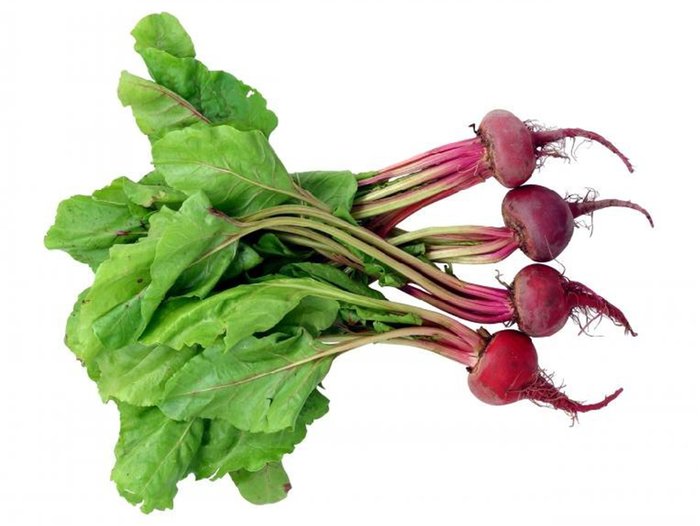Cardiovascular disease (CVD) continues to be the number one cause of disease-related death worldwide. Doctors routinely encourage patents to eat well and gets lots of exercise. Doctors also prescribe heart medicines that can be expensive and are often associated with unwanted side effects.
Dietary supplements can often be a powerful, affordable weapon in the fight against CVD. February is National Heart Month and a great time to see if you might benefit from adding heart-healthy supplements to your stack! Here are some of the best.
1. Thiamine (Vitamin B-1)
Sometimes referred to as the "anti-stress" vitamin, thiamine plays an important role in strengthening the immune system and improving your body's ability to deal with stress. Thiamine also helps keep your heart muscles elastic and working smoothly so your heart can pump at maximum efficiency.
A 2012 study of patients with chronic heart failure found that thiamine improved cardiac function in as little as four weeks.[1] If your diet is low in meat, dairy, or grains fortified with B-1, keep your ticker healthy by supplementing with a multivitamin that contains around 100 milligrams of thiamine!

2. Magnesium
The highest levels of magnesium in your body are found in your heart, so it should come as no surprise that low levels of magnesium are closely associated with cardiovascular disease. A study of data from more than 500,000 participants found those who consumed more magnesium had a lower risk of developing atherosclerosis, hypertension, and heart disease.[2]
You can get magnesium from foods like whole grains, nuts, and vegetables. But research suggests that most people just don't get enough magnesium from their normal diets. By taking a magnesium supplement of 400-800 milligrams a day, you can make sure your heart has the magnesium it needs to work well.
3. Coenzyme Q10 (CoQ10)
Found in almost every cell in your body, the vitamin coenzyme Q10 helps convert food into useable energy. It also acts as a powerful antioxidant, protecting your heart against potential damage caused during periods of high stress.[3]
Your body naturally produces small amounts of CoQ10. This ability decreases with age, so taking a supplement may help prevent the onset of cardiovascular disease. While more research is needed in this area, supplementing with 100-200 milligrams of CoQ10 per day may help offset a natural decline in production levels and support a healthy heart.[4,5]
4. Green Tea
The potent antioxidant properties of polyphenols (a fancy name for the compounds found in green tea) help reduce free-radical damage to cells. Polyphenols also inhibit the development of plaque on the walls of the arteries, potentially decreasing your risk of heart attacks and stroke.
If drinking three or more cups of green tea every day isn't your thing, supplementing with 300-400 milligrams of green tea extract should produce the same benefits.
5. Omega-3s
You've probably heard that two omega-3 fatty acids, EPA and DHA, are good for your health—especially your heart health. This is due in part to these acids' ability to reduce the risk of plaque buildup in arteries and maintain healthy blood pressure.[6,7]
The problem with most American diets is that they don't get enough omega-3 and too much omega-6, which can actually increase the risk of inflammation and heart disease. A healthy ratio of omega-6 to omega-3 is around 2:1. If you're not eating fatty fish a couple times a week, consider supplementing with 500 milligrams EPA and DHA to protect your heart.
6. Beetroot
Nitrates are great. They can improve your exercise performance. They can give your muscles that fuller, more "pumped" look. And they can reduce your blood pressure and improve your heart health.

Beetroot juice is one of the richest dietary sources of nitrates and has been shown in multiple studies to lower blood pressure in healthy adults.[8,9] Making high-nitrate foods such as beets and leafy greens part of your diet may be enough to decrease your risk for hypertension, heart disease, and stroke. Just to be safe, consider supplementing your diet with 100 milligrams of beetroot extract per day.
References
- Schoenenberger, A. W., Schoenenberger-Berzins, R., Der Maur, C. A., Suter, P. M., Vergopoulos, A., & Erne, P. (2012). Thiamine supplementation in symptomatic chronic heart failure: a randomized, double-blind, placebo-controlled, cross-over pilot study. Clinical Research in Cardiology, 101(3), 159-164.
- Qu, X., Jin, F., Hao, Y., Li, H., Tang, T., Wang, H., ... & Dai, K. (2013). Magnesium and the risk of cardiovascular events: a meta-analysis of prospective cohort studies. PloS One, 8(3), e57720.
- Sharma, A., Fonarow, G. C., Butler, J., Ezekowitz, J. A., & Felker, G. M. (2016). Coenzyme Q10 and Heart Failure. Circulation: Heart Failure, 9(4), e002639.
- Kumar, A., Kaur, H., Devi, P., & Mohan, V. (2009). Role of coenzyme Q10 (CoQ10) in cardiac disease, hypertension and Meniere-like syndrome. Pharmacology & Therapeutics, 124(3), 259-268.
- Gao, L., Mao, Q., Cao, J., Wang, Y., Zhou, X., & Fan, L. (2012). Effects of coenzyme Q10 on vascular endothelial function in humans: a meta-analysis of randomized controlled trials. Atherosclerosis, 221(2), 311-316.
- Harris, W. S., Miller, M., Tighe, A. P., Davidson, M. H., & Schaefer, E. J. (2008). Omega-3 fatty acids and coronary heart disease risk: clinical and mechanistic perspectives. Atherosclerosis, 197(1), 12-24.
- Del Gobbo, Liana C., et al. Omega-3 Polyunsaturated Fatty Acid Biomarkers and Coronary Heart Disease: Pooling Project of 19 Cohort Studies. JAMA Internal Medicine, 176.8 (2016): 1155-1166.
- Hobbs, D. A., Kaffa, N., George, T. W., Methven, L., & Lovegrove, J. A. (2012). Blood pressure-lowering effects of beetroot juice and novel beetroot-enriched bread products in normotensive male subjects. British Journal of Nutrition, 108(11), 2066-2074.
- Coles, L. T., & Clifton, P. M. (2012). Effect of beetroot juice on lowering blood pressure in free-living, disease-free adults: a randomized, placebo-controlled trial. Nutrition Journal, 11(1), 106.

